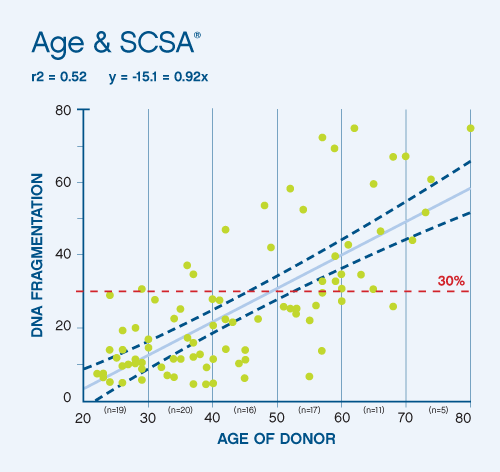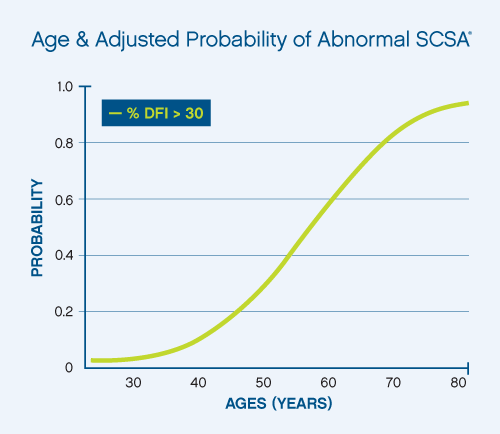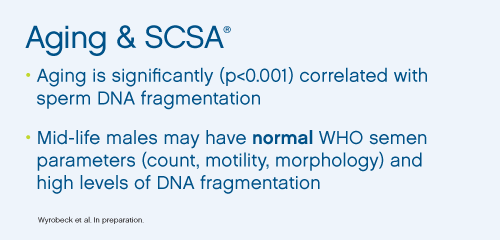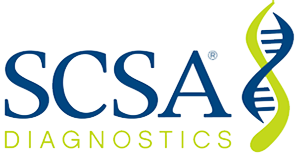Age
Just a few years ago at a patient workshop for infertile couples, a woman asked a speaker, "Does the age of the man have an effect on pregnancy outcome?" Surprisingly, the physician said, "Sperm are just like wine - the older the better." This view is very old school and simply incorrect!
While maternal age over 35 years is a well-known risk factor for decreased fertility, it has clearly been demonstrated that sperm DNA fragmentation increases with age. If the man of a TTC couple is over 40 yrs and/or has experienced infertility and/or miscarriages, do an SCSA test to determine if this is the cause.
While maternal age over 35 years is a well-known risk factor for decreased fertility, it has clearly been demonstrated that sperm DNA fragmentation increases with age (Wyrobek et al, Evenson and Wixon, 2006). In a clinical study of 17,000 IUI cycles (Belloc et al, 2008) (Belloc et al (2008) RBM Online 17:392-397) the overall pregnancy rate was 12.7% per cycle but decreased from 14.4% before 30 years of age to 8.9% after 42 years. Of great importance, the miscarriage rate increased more than 4 X from 11.1% before 30 yrs to 45.6% after 42 years of age. This is in agreement from the data showing that men of couples that had two or more miscarriages had 4 times greater amount of sperm DNA fragmentation. (see above) (D Carroll) Remember, men's sperm DNA integrity varies with individuals, check to see if your man is on the better or not better side.
ACTION POINT: If the man of a TTC couple is over 40 yrs and/or has experienced infertility and/or miscarriages, do an SCSA test to determine if this is the cause.)



 PATIENT INFORMATION
PATIENT INFORMATION CLINIC INFORMATION
CLINIC INFORMATION

